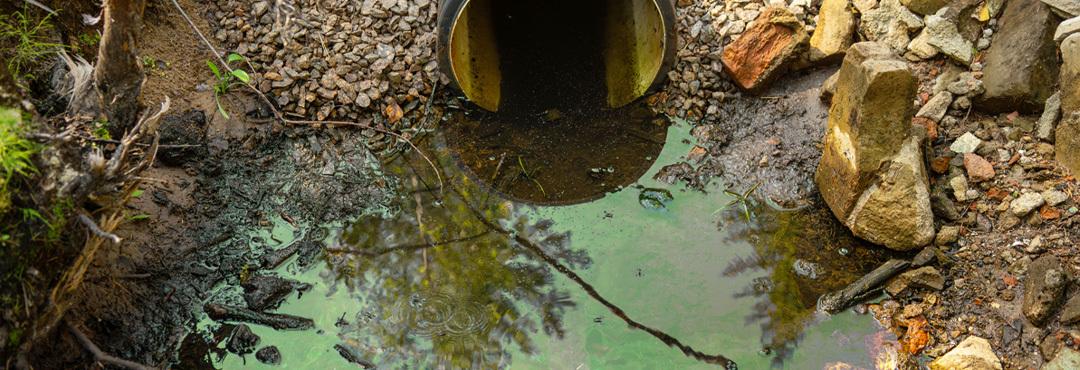Environmental Accidents are a Threat to Small Businesses
Environmental accidents can strike businesses of all sizes, from small family-owned enterprises to multinational corporations. The consequences can be devastating, ranging from financial ruin to reputational damage and even legal repercussions.
By understanding the importance of Environmental Liability Insurance (ELI) and taking proactive steps to secure adequate coverage, businesses can mitigate the potential impact of environmental incidents and safeguard their future.
A Case Study from the River Don Spill
The recent incident of a fuel spill into the River Don near Doncaster in August 2024 serves as a stark reminder of the environmental risks faced by businesses and the limitations of standard public liability insurance. As reported by the BBC, approximately 4,000 litres of fuel spilt into the river, causing a major environmental incident. The clean-up operation is estimated to cost between £200,000 and £2,000,000, highlighting the significant financial burden that such accidents can pose.
The cause of the spill is still under investigation, but the potential consequences are clear. The fuel contamination could have a devastating impact on the local ecosystem, harming fish and wildlife populations. Additionally, the spill could disrupt water supplies and recreational activities in the area.
In such situations, public liability insurance is unlikely to provide adequate coverage. While it might cover claims for immediate bodily injury or property damage, the long-term costs of environmental cleanup and remediation would likely fall outside the scope of the policy. This is where Environmental Liability Insurance becomes crucial.
Potential Environmental Liabilities for SMEs
Even small businesses have the potential to cause unintentional environmental damage. From leaking storage tanks to spills during product transportation, accidents can occur at any stage of the operation. These incidents can contaminate soil, water, and air, posing a serious threat to the environment and human health.
Here are some common environmental liabilities that SMEs might face:
- Cleanup costs: Government agencies often require responsible parties to clean up contaminated sites. These costs can quickly escalate, involving soil removal, water remediation, and waste disposal.
- Third-party liability: If your business activity causes environmental damage to neighbouring properties or businesses, you could be held liable for the cost of repairs and lost income.
Public Liability vs. Environmental Liability Insurance
Many businesses mistakenly believe that their standard public liability insurance will cover environmental liabilities. However, this is often not the case. While both types of insurance are important for protecting your business, they serve distinct purposes and offer different levels of coverage.
Public liability insurance protects your business against claims for bodily injury and property damage caused by your operations to third parties. This includes incidents such as
- Customer slips and falls: If a customer trips and falls on your premises, causing injuries, public liability insurance can cover the medical expenses and any associated legal costs.
- Product defects: If your products cause harm to consumers, public liability insurance can provide coverage for resulting injuries or property damage.
- Employee accidents: If an employee injures someone while acting within the scope of their employment, public liability insurance can help cover the costs.
ELI, on the other hand, is specifically designed to cover environmental liabilities. This includes:
- Cleanup costs: If your business activities cause environmental damage, such as a chemical spill or soil contamination, ELI can cover the costs of cleaning up the affected area.
- Third-party liability: If your environmental damage affects neighbouring properties or businesses, ELI can provide coverage for any resulting claims.
Environmental claims are often more complex and can involve long-term remediation efforts, making ELI more specialised. ELI insurers have expertise in handling environmental claims and can provide specialised guidance and support.
The Importance of Environmental Liability Insurance
Environmental Liability Insurance for SMEs [https://www.farmcover.co.uk/for-business]bridges the gap in your business insurance portfolio by specifically covering environmental liabilities. This includes:
- Financial Protection Against Cleanup Costs: Environmental accidents can be incredibly expensive to clean up. Even a small spill can lead to significant remediation costs. ELI provides financial protection to cover these expenses, preventing your business from facing financial ruin.
- Third-Party Liability Coverage: If your business's activities cause environmental damage to neighbouring properties or businesses, you could be held liable for their losses. ELI covers third-party liability claims, ensuring that you are financially protected and can maintain good relationships with your neighbours.
- Peace of Mind and Reputation Management: Having ELI in place can provide you with peace of mind knowing that your business is financially protected in the event of an environmental accident. It can also help to protect your business's reputation, which is essential for attracting and retaining customers.
Choosing the Right Environmental Liability Insurance
When selecting an ELI policy, there are several factors to consider:
- Coverage Limits: Ensure that the policy's coverage limits are sufficient to cover potential cleanup costs and third-party liability claims.
- Pollution Exclusion: Some ELI policies may have pollution exclusions, which can limit coverage for certain types of environmental damage.
- Retroactive Coverage: This feature extends coverage to incidents that occurred before the policy was purchased.
- Defence Costs: Ensure that the policy covers legal defence costs, regardless of the outcome of a claim.
Your Partner in Environmental Liability Protection
At Farm & General, we offer a comprehensive SME ELI policy designed to meet the specific needs of small and medium-sized enterprises and farms. Our policy provides broad coverage for a wide range of environmental liabilities and experienced claims handling to ensure a smooth claims process.
Our team of insurance professionals has extensive experience in ELI and we can tailor our policies to meet your unique business needs. We are committed to providing exceptional customer service and support.
To learn more about our SME Environmental Liability Insurance policy and to get a quote, please contact our team. Don't let environmental risks jeopardize your business's success.




